#Henry Louis Gates Jr.
Text
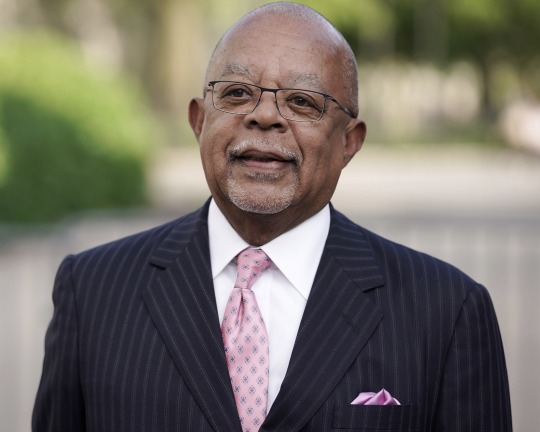
Henry Louis Gates Jr.
#suitdaddy#suiteddaddy#suit and tie#suited daddy#men in suits#daddy#suited#suit#suited grandpa#suitfetish#suitedman#suit daddy#suited men#suited man#buisness suit#suitedmen#americans#black daddy#Henry Louis Gates Jr.#Henry Louis Gates
16 notes
·
View notes
Text
“On the populist left, the then favored model of the oppositional spokesman was what Gramsci called the “organic intellectual”: someone who participated in and was part of the community he would uplift. And yet James Baldwin’s basic conception of himself was formed by the familiar, and still well-entrenched, idea of the alienated artist or intellectual, whose advanced sensibility entailed his estrangement from the very people he would represent. Baldwin could dramatize the tension between these two models – he would do so in his fiction – be he was never to resolve it.”
– Henry Louis Gates Jr., The Welcome Table
[From the anthology: Lure and Loathing: Twenty black intellectuals address W.E.B. Du Bois’s dilemma of the double-consciousness of African Americans. Edited by Gerald Early.]
7 notes
·
View notes
Text
New ep is up!
#larry wilmore#the ringer#spotify#black on the air#podcast#henry louis gates jr.#pbs#finding your roots#genealogy#ancestry#Spotify
13 notes
·
View notes
Link
MAKING BLACK AMERICA: THROUGH THE GRAPEVINE is a four-part series from executive producer, host and writer Professor Henry Louis Gates, Jr., which will premiere October 4th on PBS stations nationwide. Professor Gates, with directors Stacey L. Holman and Shayla Harris, chronicle the vast social networks and organizations created by and for Black people beyond the reach of the “White gaze.”
7 notes
·
View notes
Text
I'm a genealogy nut. This was a great episode.
#Joe Manganiello#Tony Gonzales#Finding Your Roots#henry louis gates jr.#genealogy#PBS#Joe m#hello beautiful#zane 2
2 notes
·
View notes
Text
Watch "Making Black America | Official Trailer | PBS" on YouTube
youtube
2 notes
·
View notes
Quote
Is it fair to see Governor DeSantis’s attempts to police the contents of the College Board’s A.P. curriculum in African American studies in classrooms in Florida solely as little more than a contemporary version of Mildred Rutherford’s Lost Cause textbook campaign? No. But the governor would do well to consider the company that he is keeping. And let’s just say that he, no expert in African American history, seems to be gleefully embarked on an effort to censor scholarship about the complexities of the Black past with a determination reminiscent of Rutherford’s. While most certainly not embracing her cause, Mr. DeSantis is complicitous in perpetuating her agenda.
Henry Louis Gates, “Who’s Afraid of Black History?,” The New York Times, February 17, 2023, https://www.nytimes.com/2023/02/17/opinion/desantis-florida-african-american-studies-black-history.html.
#African American history#College Board#Advanced Placement courses#education#curricula#Mildred Rutherford#Ron DeSantis#textbooks#history#Henry Louis Gates Jr.#The New York Times
0 notes
Text
PBS' 'Making Black America' details thriving while excluded
PBS’ ‘Making Black America’ details thriving while excluded
LOS ANGELES (AP) — America slammed the door in the face of Black progress time after time, and time after time African Americans responded by thriving in a society of their own making.
When Black doctors were excluded from the American Medical Association, they formed the National Medical Association in 1895. Black colleges, businesses, social groups and even fashion shows grew as alternatives to…
View On WordPress
#American Medical Association#arts and entertainment#Cultures#Entertainment#Fashion#Fashion shows#Henry Louis Gates Jr.#Lifestyle#Race and ethnicity#Racial injustice
0 notes
Text
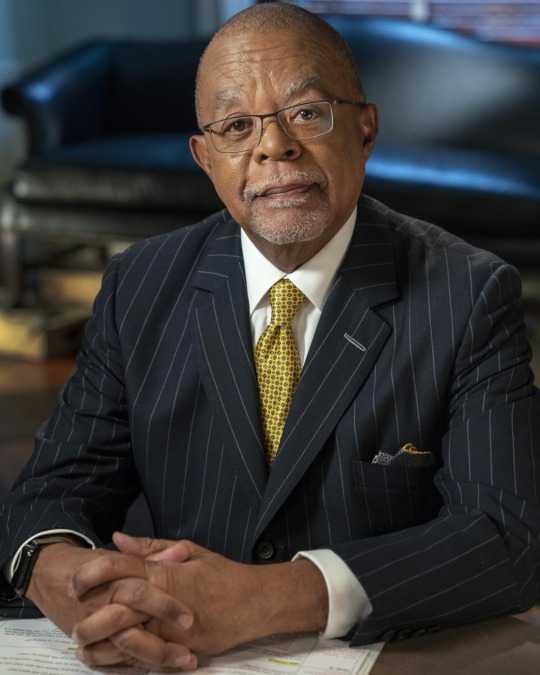
Henry Louis Gates Jr.
#suitdaddy#suiteddaddy#suit and tie#suited daddy#men in suits#silverfox#suitfetish#black daddy#suited men#suited grandpa#suitedman#suit daddy#suited man#buisness suit#suitedmen#americans#finding your roots#Henry Louis Gates Jr.
11 notes
·
View notes
Text
100 AMAZING FACTS ABOUT THE NEGRO - HENRY LOUIS GATES, JR.

100 AMAZING FACTS ABOUT THE NEGRO - HENRY LOUIS GATES, JR.
The first edition of Joel Augustus Rogers' now legendary 100 Amazing Facts About the Negro with Complete Proof, published in 1957, was billed as "A Negro 'Believe It or Not'". Rogers' little book was priceless because he was delivering enlightenment and pride, steeped in historical research, to a people too long starved on the lie that they were worth nothing. For African Americans of the Jim Crow era, Rogers' was their first black history teacher. But Rogers was not always shy about embellishing the "facts" and minimizing ambiguity; neither was he above shock journalism now and then.
With élan and erudition - and with winning enthusiasm - Henry Louis Gates Jr. gives us a corrective yet loving homage to Rogers' work. Relying on the latest scholarship, Gates leads us on a romp through African, diasporic, and African American history in question-and-answer format. Among the 100 questions: Who were Africa's first ambassadors to Europe? Who was the first black president in North America? Did Lincoln really free the slaves? Who was history's wealthiest person? What percentage of white Americans have recent African ancestry? Why did free black people living in the South before the end of the Civil War stay there? Who was the first black head of state in modern Western history? Where was the first Underground Railroad? Who was the first black American woman to be a self-made millionaire? Which black man made many of our favorite household products better?
Here is a surprising, inspiring, sometimes boldly mischievous - all the while highly instructive and entertaining - compendium of historical curiosities intended to illuminate the sheer complexity and diversity of being "Negro" in the world.
8 notes
·
View notes
Text
More with Dr. Henry Louis Gates Jr.
Listen to our full convo on @spotify
#larry wilmore#black on the air#the ringer#spotify#podcast#henry louis gates jr.#finding your roots#pbs#racisim#slavery#one drop rule
9 notes
·
View notes
Link
This is an excellent commentary by Henry Louis Gates Jr. The link above is a gift link, so anyone can read the entire column, even if they don’t subscribe to The New York Times.
Gates argues convincingly that what far right politicians like Ron DeSantis are doing in trying to control the history that is taught in schools is very similar to what was done by the United Daughters of the Confederacy in their promotion of schools teaching the “Lost Cause” and a rewritten whitewashed history.
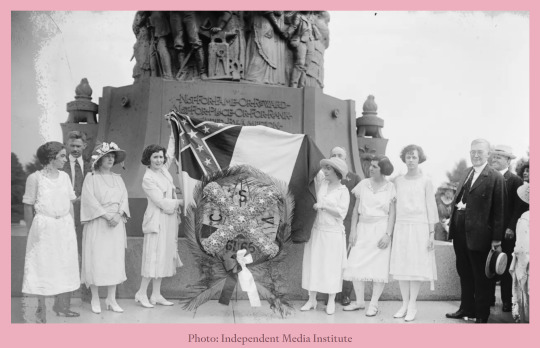
Gates also argues that there has always been rigorous debate within the Black community about many “ideological and theoretical framework[s]” regarding the Black experience in America. He believes these differences are discussed in African American Studies courses and raise important debates for the students who take those classes.
The one important thing Gates left out of this essay was that in the 1920s the KKK also promoted only teaching a history that praised the founders, much like the “patriotic” civics/history DeSantis and other GOP politicians are also pushing.
Below are some highlights from the column [all emphasis added]:
Lurking behind the concerns of Ron DeSantis, the governor of Florida, over the content of a proposed high school course in African American studies, is a long and complex series of debates about the role of slavery and race in American classrooms.
“We believe in teaching kids facts and how to think, but we don’t believe they should have an agenda imposed on them,” Governor DeSantis said. He also decried what he called “indoctrination.”
[...]
Even if we give the governor the benefit of the doubt about the motivations behind his recent statements about the content of the original version of the College Board’s A.P. curriculum in African American studies, his intervention falls squarely in line with a long tradition of bitter, politically suspect battles over the interpretation of three seminal periods in the history of American racial relations: the Civil War; the 12 years following the war, known as Reconstruction; and Reconstruction’s brutal rollback, characterized by its adherents as the former Confederacy’s “Redemption,” which saw the imposition of Jim Crow segregation, the reimposition of white supremacy and their justification through a masterfully executed propaganda effort.
Undertaken by apologists for the former Confederacy with an energy and alacrity that was astonishing in its vehemence and reach, in an era defined by print culture, politicians and amateur historians joined forces to police the historical profession. The so-called Lost Cause movement was, in effect, a take-no-prisoners social media war. And no single group or person was more pivotal to “the dissemination of the truths of Confederate history, earnestly and fully and officially,” than the historian general of the United Daughters of the Confederacy, Mildred Lewis Rutherford, of Athens, Ga. Rutherford was a descendant of a long line of slave owners.... Rutherford served as the principal of the Lucy Cobb Institute (a school for girls in Athens) and vice president of the Stone Mountain Memorial project, the former Confederacy’s version of Mount Rushmore.
As the historian David Blight notes, “Rutherford gave new meaning to the term ‘die-hard.’” Indeed, she “considered the Confederacy ‘acquitted as blameless’ at the bar of history, and sought its vindication with a political fervor that would rival the ministry of propaganda in any twentieth-century dictatorship.” And she felt that the crimes of Reconstruction “made the Ku Klux Klan a necessity.” As I pointed out in a PBS documentary on the rise and fall of Reconstruction, Rutherford intuitively understood the direct connection between history lessons taught in the classroom and the Lost Cause racial order being imposed outside it, and she sought to cement that relationship with zeal and efficacy. She understood that what is inscribed on the blackboard translates directly to social practices unfolding on the street.
[See more under the cut.]
“Realizing that the textbooks in history and literature which the children of the South are now studying, and even the ones from which many of their parents studied before them,” she wrote in “A Measuring Rod to Test Text Books, and Reference Books in Schools, Colleges and Libraries,” “are in many respects unjust to the South and her institutions, and that a far greater injustice and danger is threatening the South today from the late histories which are being published, guilty not only of misrepresentations but of gross omissions, refusing to give the South credit for what she has accomplished, … I have prepared, as it were, a testing or measuring rod.” And Rutherford used that measuring rod to wage a systematic campaign to redefine the Civil War not as our nation’s war to end the evils of slavery, but as “the War Between the States,” since as she wrote elsewhere, “the negroes of the South were never called slaves.” And they were “well-fed, well-clothed and well-housed.”
Of the more than 25 books and pamphlets that Rutherford published, none was more important than “A Measuring Rod.” Published in 1920, her user-friendly pamphlet was meant to be the index “by which every textbook on history and literature in Southern schools should be tested by those desiring the truth.” The pamphlet was designed to make it easy for “all authorities charged with the selection of textbooks for colleges, schools and all scholastic institutions to measure all books offered for adoption by this ‘Measuring Rod,’ and adopt none which do not accord full justice to the South.” What’s more, her campaign was retroactive. As the historian Donald Yacovone tells us in his recent book, “Teaching White Supremacy,” Rutherford insisted that librarians “should scrawl ‘unjust to the South’ on the title pages” of any “unacceptable” books “already in their collections.”
On a page headed ominously by the word “Warning,” Rutherford provides a handy list of what a teacher or a librarian should “reject” or “not reject.”
“Reject a book that speaks of the Constitution other than a compact between Sovereign States.”
“Reject a textbook that does not give the principles for which the South fought in 1861, and does not clearly outline the interferences with the rights guaranteed to the South by the Constitution, and which caused secession.”
“Reject a book that calls the Confederate soldier a traitor or rebel, and the war a rebellion.”
“Reject a book that says the South fought to hold her slaves.”
“Reject a book that speaks of the slaveholder of the South as cruel and unjust to his slaves.”
And my absolute favorite, “Reject a textbook that glorified Abraham Lincoln and vilifies Jefferson Davis, unless,” she adds graciously, “a truthful cause can be found for such glorification and vilification before 1865.”
And what of slavery? “This was an education that taught the negro self-control, obedience and perseverance — yes, taught him to realize his weaknesses and how to grow stronger for the battle of life,” Rutherford writes in 1923 in “The South Must Have Her Rightful Place.” “The institution of slavery as it was in the South, far from degrading the negro, was fast elevating him above his nature and race.” For Rutherford, who lectured wearing antebellum hoop gowns, the war over the interpretation of the meaning of the recent past was all about establishing the racial order of the present: “The truth must be told, and you must read it, and be ready to answer it.” Unless this is done, “in a few years there will be no South about which to write history.”
In other words, Rutherford’s common core was the Lost Cause. And it will come as no surprise that this vigorous propaganda effort was accompanied by the construction of many of the Confederate monuments that have dotted the Southern landscape since.
While it’s safe to assume that most contemporary historians of the Civil War and Reconstruction are of similar minds about Rutherford and the Lost Cause, it’s also true that one of the most fascinating aspects of African American studies is the rich history of debate over issues like this, and especially over what it has meant — and continues to mean — to be “Black” in a nation with such a long and troubled history of human slavery at the core of its economic system for two-and-a-half centuries.
Heated debates within the Black community, beginning as early as the first decades of the 19th century, have ranged from what names “the race” should publicly call itself (William Whipper vs. James McCune Smith) and whether or not enslaved men and women should rise in arms against their masters (Henry Highland Garnet vs. Frederick Douglass). Economic development vs. political rights? (Booker T. Washington vs. W.E.B. Du Bois). Should Black people return to Africa? (Marcus Garvey vs. W.E.B. Du Bois). Should we admit publicly the pivotal role of African elites in enslaving our ancestors? (Ali Mazrui vs. Wole Soyinka).
Add to these repeated arguments over sexism, socialism and capitalism, reparations, antisemitism and homophobia. It is often surprising to students to learn that there has never been one way to “be Black” among Black Americans, nor have Black politicians, activists and scholars ever spoken with one voice or embraced one ideological or theoretical framework. Black America, that “nation in a nation,” as the Black abolitionist Martin R. Delany put it, has always been as varied and diverse as the complexions of the people who have identified, or been identified, as its members.
[...]
As a consultant to the College Board as it developed its A.P. course in African American studies, I suggested the inclusion of a “pro and con” debate unit at the end of its curriculum because of the inherent scholarly importance of many of the contemporary hot-button issues that conservative politicians have been seeking to censor, but also as a way to help students understand the relation between the information they find in their textbooks and efforts by politicians to say what should and what should not be taught in the classroom.
Why shouldn’t students be introduced to these debates? Any good class in Black studies seeks to explore the widest range of thought voiced by Black and white thinkers on race and racism over the long course of our ancestors’ fight for their rights in this country. In fact, in my experience, teaching our field through these debates is a rich and nuanced pedagogical strategy, affording our students ways to create empathy across differences of opinion, to understand “diversity within difference,” and to reflect on complex topics from more than one angle. It forces them to critique stereotypes and canards about who “we are” as a people and what it means to be “authentically Black.” I am not sure which of these ideas has landed one of my own essays on the list of pieces the state of Florida found objectionable, but there it is.
[emphasis added]
There is much more in this essay that is worth reading. As I said before, the gift link above will allow you to read the entire essay. I encourage you to do so.
[edited]
#henry louis gates jr#black history month#ron desantis#ap african american studies#united daughters of the confederacy#kkk#whitewashed history#white nationalist indoctrination#us education#gop#the new york times
57 notes
·
View notes
Text

While the Mafia connected to British and Irish individuals like Cillian Murphy try to float that Benedict Cumberbatch lost this role, because of them, I'll just go ahead and inform the public about Edward Norton being in on the attempted extortion plot, against the actor. Recall at the time, that he and Henry Louis Gates Jr just HAPPENED to release an episode revealing Norton's family once owned slaves, and then Norton did interviews, loudly stating how 'we NEED to talk about this very important subject."
After the extortion plot failed, Norton suddenly shut up about it. And was in the propaganda-filled Glass Onion and is just a straight up asshole. They can have him for Bob Seeger.
#benedict cumberbatch#Edward Norton#Reperation Extortion Plot#Cult of Scientology Hollywood Gay Mafia#Henry Louis Gates Jr#Glass Onion#Bob Seeger#Bob Dylan Biopic#BLM#Queer Marxist Mob Muscle
5 notes
·
View notes
Text


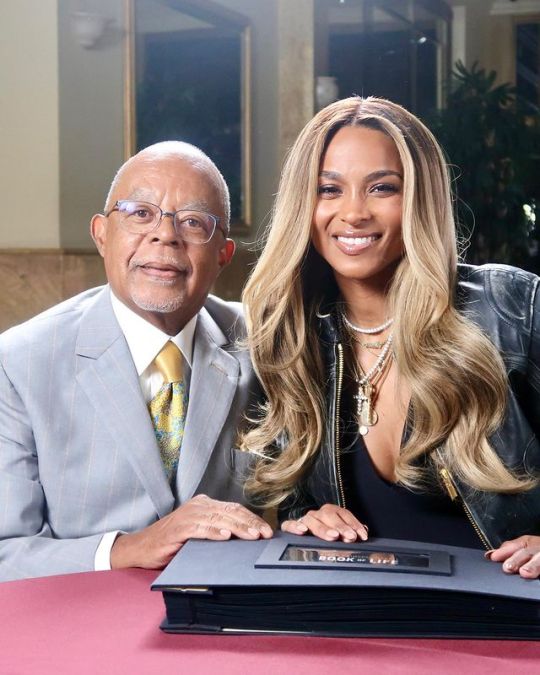
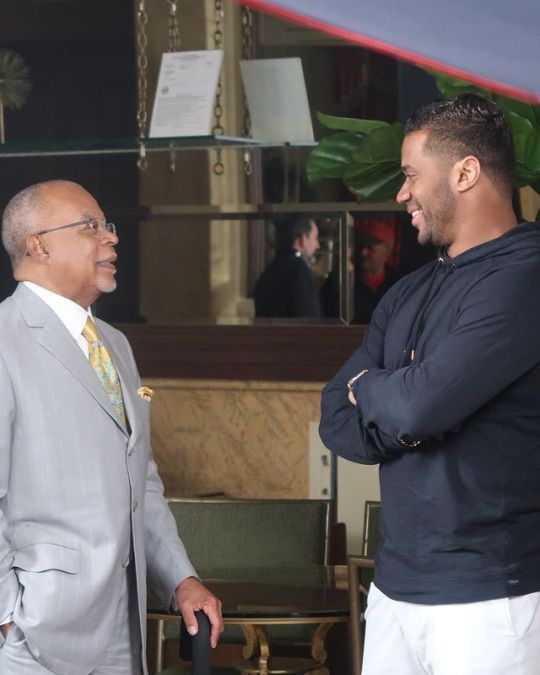
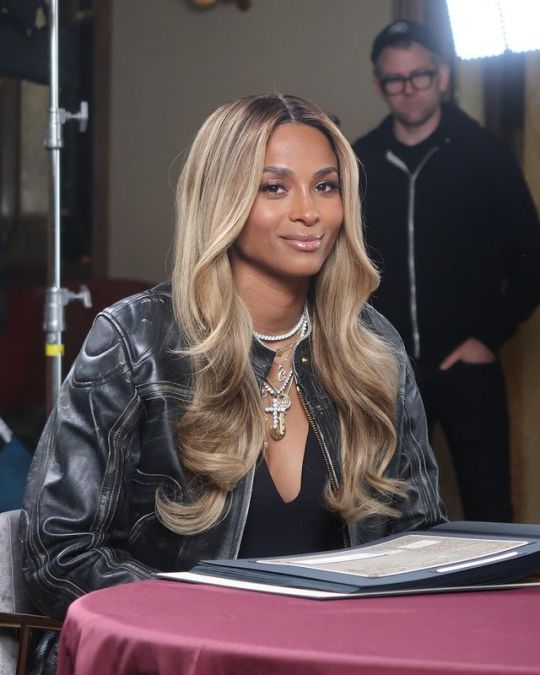
henrylouisgates "Avoid any spoilers by streaming last night’s premiere of #FindingYourRoots! Thank you to @ciara for being such a magnificent guest – we loved walking you through your family tree!
Stream the full episode of #FindingYourRoots now using the @PBS app or go to pbs.org/FindingYourRoots."
#ciara#tumblr#celebs#celebrities#makeup#fashion#hair#girl#lips#glamour#portrait#russell wilson#teamciara#csquad#celebrity#blackgirlmagic#blackgirlsrock#beauty#henry louis gate jr#FindingYourRoots#2024
4 notes
·
View notes